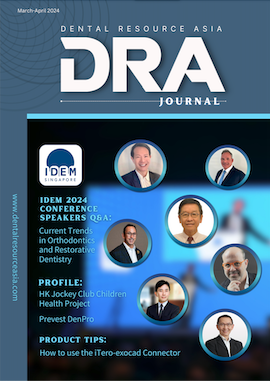USA: Dental caries, a pervasive chronic disease globally, has now been linked to sleep duration, according to a study based on the 2017–2018 cycle of the National Health and Nutrition Examination Survey (NHANES) in the United States.
Despite ongoing public health efforts, dental caries remains a widespread issue. Researchers aimed to explore the relationship between sleep duration and dental caries, shedding light on a potentially significant contributing factor.
Examining the Connection
The study analysed data from NHANES, a nationally representative health survey in the United States. Researchers focused on individuals aged 16 and above who completed sleep questionnaires and underwent dental examinations conducted by dentists using standardised clinical criteria. The study encompassed 5,205 participants, with data weighted to provide national estimates. Multiple covariates were considered to address the study’s complex sample design.
 Click to Visit website of India's Leading Manufacturer of World Class Dental Materials, Exported to 90+ Countries.
Click to Visit website of India's Leading Manufacturer of World Class Dental Materials, Exported to 90+ Countries.
The primary outcomes under scrutiny were untreated dental caries and dental caries experience. Researchers examined average sleep hours per night as the main predictor variable and created a binary variable with a 7-hour threshold. Multiple weighted Poisson and logistic regression analyses were conducted to test the hypothesis that shorter sleep durations are associated with a higher likelihood of dental caries.
Significant Findings
The study’s findings established a statistically significant negative relationship between sleep duration and dental caries. For each additional hour of average sleep, the adjusted odds ratio (AOR) for experiencing dental caries decreased by 0.86 (AOR = 0.86, 95% CI = 0.75–0.98, P < 0.05). Furthermore, individuals who reported an average sleep duration of at least 7 hours were less likely to have a dental caries experience compared to those who reported less than 7 hours (AOR = 0.52, 95% CI = 0.33–0.82, P < 0.05).
This cross-sectional study, representative of the U.S. population, underscores a negative association between sleep duration and dental caries. It suggests that individuals with less than 7 hours of sleep per night are more prone to dental caries. The findings raise questions about the potential impact of sleep habits on oral health and may prompt further research into preventive measures that consider sleep patterns.
The study provides valuable insights into the multifaceted nature of dental health and highlights the need for a holistic approach to addressing dental caries beyond traditional factors.
The information and viewpoints presented in the above news piece or article do not necessarily reflect the official stance or policy of Dental Resource Asia or the DRA Journal. While we strive to ensure the accuracy of our content, Dental Resource Asia (DRA) or DRA Journal cannot guarantee the constant correctness, comprehensiveness, or timeliness of all the information contained within this website or journal.
Please be aware that all product details, product specifications, and data on this website or journal may be modified without prior notice in order to enhance reliability, functionality, design, or for other reasons.
The content contributed by our bloggers or authors represents their personal opinions and is not intended to defame or discredit any religion, ethnic group, club, organisation, company, individual, or any entity or individual.


